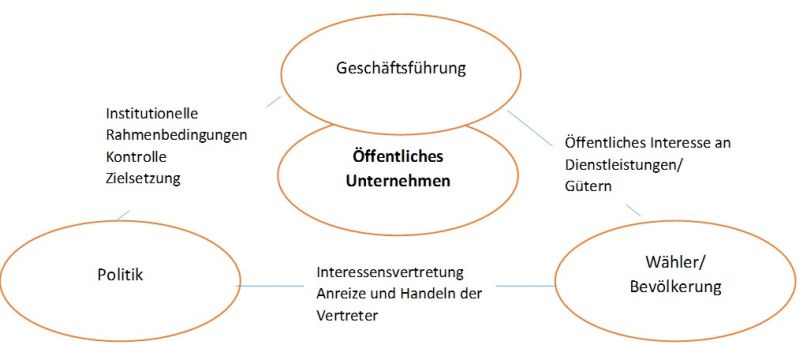The Political Economy of Public Enterprises
The project in brief:
The aim of the project is to use empirical methods to validate what constitutes the special features and success factors of public enterprises in Germany, building on theoretically sound considerations about public enterprises. In addition to theoretical and methodological considerations, suitable data must be collected and processed.
Why public enterprises?
Public enterprises, such as energy and water supply or waste management, are in the area of conflict between public administration and public interest, but also political decision makers. This starts with the decision for or against a spin-off and continues with the design of the framework conditions (e.g. in the choice of legal form) for spin-off legal forms as well as control and co-determination, for example in supervisory boards and shareholders' meetings. At the same time, public enterprises are important for the functioning provision of goods and services that are indispensable for the general public.
Theoretical approaches
The tension between management of the public enterprise - politics - public administration requires to deal with the institutional conditions, i.e. to build on approaches of the (New) Institutional Economics . What is the extent of institutionalized control? Do the peculiarities of public enterprises lead to increased transaction costs? Are there asymmetries in information on success and failure?
In particular, due to the influence of political actors, their actions, i.e., incentives and interests, must also be considered in the context of political economy . The focus here is on voters, their elected representatives (politicians) and the administration. Are there incentives for politicians to behave opportunistically and what influence does this have on the finances of public enterprises? Do the incentives and actions differ depending on the period under consideration?

Data
The annual financial statement statistics of public companies can be used to analyze various values for the success of public companies. Political indicators and detailed information on framework conditions are collected, processed and compiled.